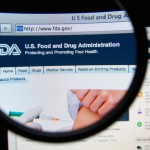On November 30, 2016, the House overwhelmingly passed (392-26) the 21st Century Cures Act (“Bill”). The Bill moves on to the Senate next week and it is projected to pass in the Senate as well. Notably, the Bill seeks to improve upon the federal regulatory structure regarding Federal Drug Administration (FDA) approval and expediting the development of new drugs. Under the Bill, FDA funding would increase by $500 million. The Bill also provides for the authorization of new National Institutes of Health research grant funding, in the billions, including funding for Vice President Biden’s “moonshot” to cure cancer. Importantly, a proposed provision regarding reporting under the Sunshine Act was removed from the Bill. Specifically, the proposed provision would have exempted from the reporting requirements of the Physician Payment Sunshine Act payments from drug and device manufacturers to physicians for speaking at continuing medical education events and for contributing to medical textbooks, or medical journals.
FDA
E-Cigarettes, Food and Drug Law, HHS, Regulations / No Comments
Days after the publication of the Food and Drug Administration’s controversial final rule regarding e-cigarettes (and other nicotine-delivering products), a company called Nicopure Labs LLC filed a lawsuit challenging it in the U.S. District Court for the District of Columbia. Nicopure seeks to have the rule vacated and declared unlawful, and has requested a preliminary injunction barring enforcement of the rule and prohibiting the FDA from taking any action under the rule pending resolution of the lawsuit.
The final rule, which will take effect on August 8, 2016 absent an injunction, grants the FDA authority to regulate electronic cigarettes and other vaping products and imposes rules on the industry that many insiders fear will leave it decimated. These rules include banning sales to anyone younger than 18 years of age, requiring extensive warning labels on packing and — most significantly — subjecting all products (even those currently on the market) to the FDA approval process and the FDA’s reporting and recordkeeping requirements. The price tag associated with the FDA approval process alone likely will pose an insurmountable barrier for the small vape shops, device manufacturers and e-liquid producers that currently drive most of the industry.
Nicopure, a Florida company that distributes battery-powered vaping devices and manufactures and distributes e-liquid, seeks to have the Final Rule vacated on several grounds. First, Nicopure alleges that the deeming rule defines “tobacco product” so broadly that it constitutes an unreasonable construction of the authority granted under the Administrative Procedure Act (APA). Additionally, Nicopure contends that the rule should be vacated as arbitrary and capricious in violation of the APA. Finally, Nicopure brings a constitutional challenge, arguing that the rule violates the First Amendment by prohibiting manufacturers from “making truthful and nonmisleading statements regarding vaping devices, e-liquids and related products” and from “engaging in other forms of protected expression, including by distributing free samples of vaping devices or e-liquids.”
As of this writing, the FDA has not responded to Nicopure’s complaint, but the case (Nicopure Labs, LLC v. Food and Drug Administration, et al.,1:16-cv-00-878) will no doubt be closely watched by the rule’s proponents and detractors alike.
For more information you can contact Ryan Blaney or another member of Cozen O’Connor’s Health Law team.
Affordable Care Act, CMS, Medicare, Uncategorized / No Comments
 The FDA released draft guidelines (“Guidelines”) on Monday, March 9, 2015 establishing recommendations on the use of e-media and processes to obtain informed consent for clinical investigations (trials) of medical products including human drug and biological products, medical devices and combinations. The Guidelines provide useful insight for how the FDA recommends clinical investigators, sponsors and institutional review boards (“IRB”) should use e-informed consent for a clinical trial.
The FDA released draft guidelines (“Guidelines”) on Monday, March 9, 2015 establishing recommendations on the use of e-media and processes to obtain informed consent for clinical investigations (trials) of medical products including human drug and biological products, medical devices and combinations. The Guidelines provide useful insight for how the FDA recommends clinical investigators, sponsors and institutional review boards (“IRB”) should use e-informed consent for a clinical trial.
The FDA defines e-informed consent as “using electronic systems and processes that may employ multiple electronic media (e.g., text, graphics, audio, video, podcasts and interactive Web sites, biological recognition devices, and card readers) to convey information related to the study and to obtain and document informed consent.” The FDA reminds clinical investigators and sponsors that informed consent is more than just a subject’s signature. Informed consent – whether completed electronically or in paper form – includes providing prospective clinical trial participants with enough information regarding the research to enable them to make an informed decision regarding whether to participate in the study. The subjects must have “adequate information” about the research. Clinical investigators and sponsors may use video conferencing (i.e. Skype) to answer a subject’s questions about the clinical trial.
The Guidelines also include a question and answer section containing 14 inquires such as:
- How information in an e-informed consent should be presented to subjects;
- How/where e-informed consent processes should be conducted; and
- How/when questions from subjects should be answered.
Similar to CMS and states recognizing the authenticity of e-signatures, this guidance demonstrates the FDA’s desire to digitize health care and respond to the increased patient access to clinical trials in states passing “right-to-try” bills. Right-to-try bills generally permit doctors and terminally ill patients to negotiate directly with drug companies to obtain experimental drugs that have passed Phase-I trials. Stay tuned for a forthcoming Health Law Informer blog announcing the FDA’s release of the e-informed consent final guidelines, which clinical investigators, sponsors and IRBs will want to consider implementing.
For further information contact the Cozen O’Connor’s health care team or the authors Ryan P. Blaney (Washington, DC) and J. Nicole Martin (Philadelphia, PA).
UPDATE
The Senate Health, Education, Labor, and Pensions (HELP) committee approved a bill on May 22 that largely tracks the Draft Legislation. As outlined below, the bill would create a new category for large-scale compounders – known as “compounding manufacturers” – and give the FDA greater authority over compounding pharmacies. Continue reading…

President Obama recently signed a bipartisan bill that authorizes Food and Drug Administration (“FDA” or “Agency”) user fees for five more years and establishes new user fees for the FDA’s review of generic drugs and biosimilar products.[1] The bill reauthorizes the Prescription Drug User Fee Act (“PDUFA” or the “Act”), a law originally passed by Congress in 1992. PDUFA permits the FDA to collect user fees from drug manufacturers to fund, among other FDA endeavors, new drug and medical device approval. The most recent reauthorization of the bipartisan bill, which increases the amount of money drug and device manufacturers must pay the FDA to review a new drug or device application, has gained the support of both Congress and the pharmaceutical industry.


